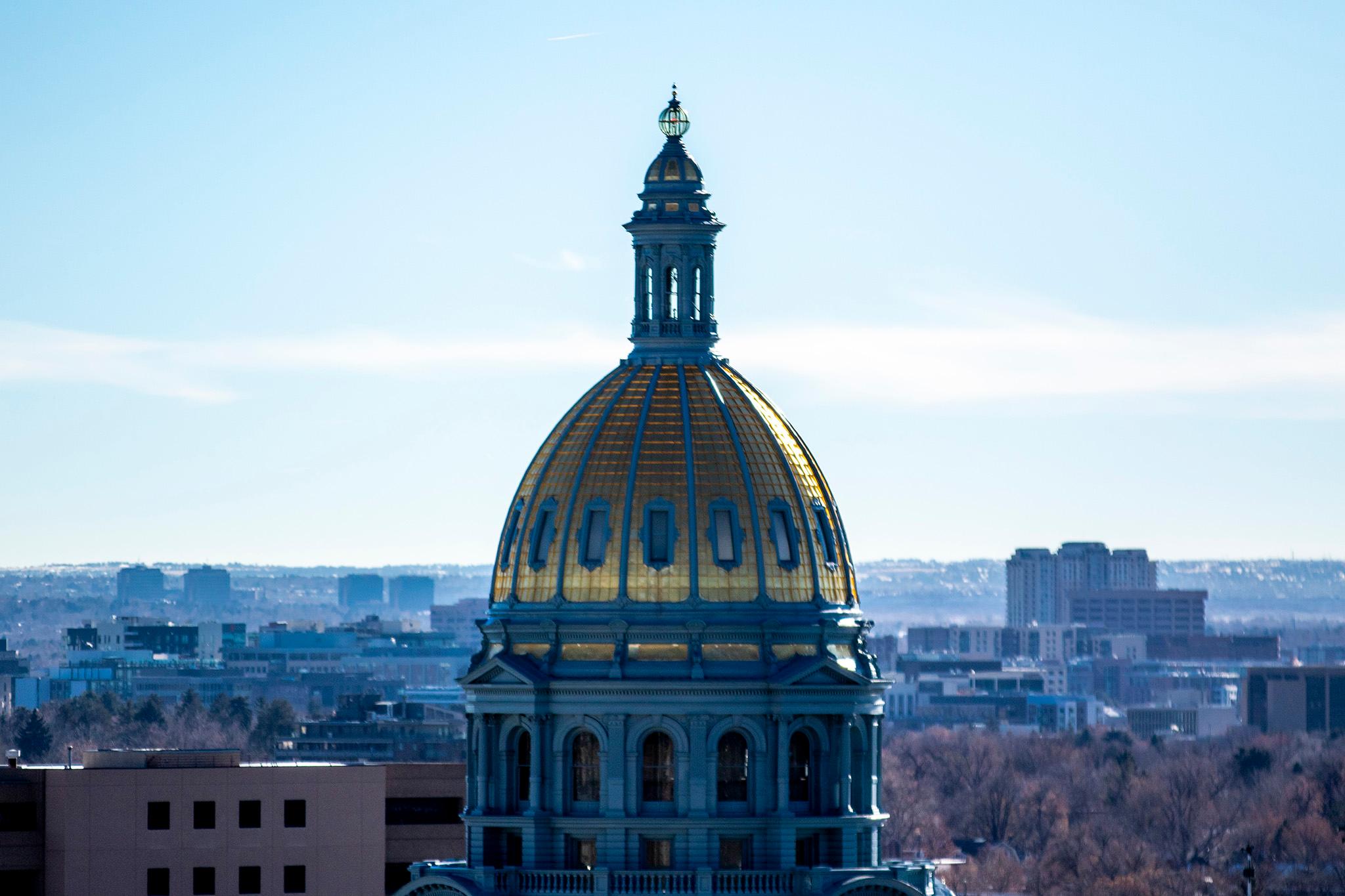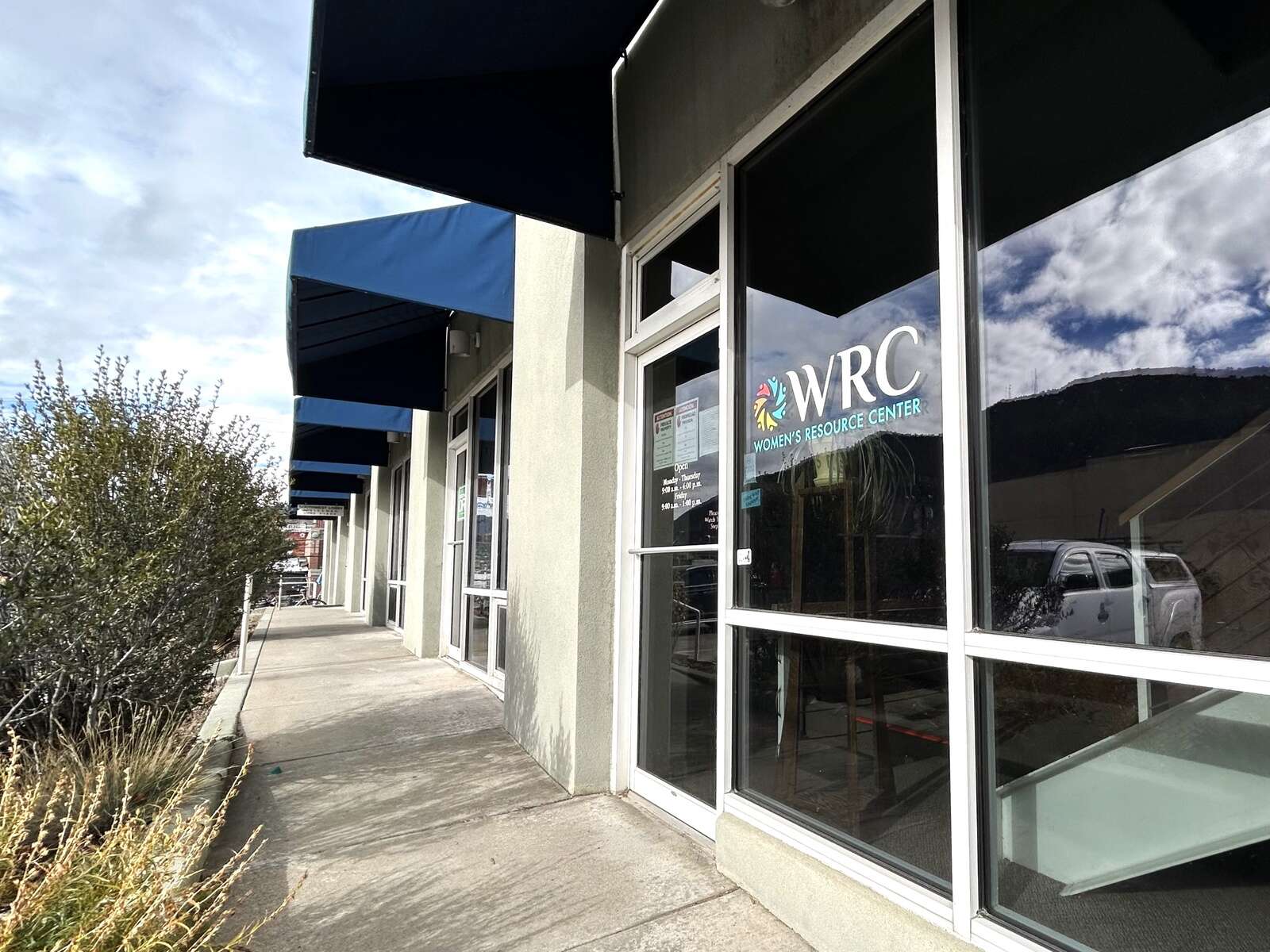
A bipartisan group has laid out its big ideas for resolving a years-long debate over how much money homeowners and others should pay on their property taxes in Colorado.
The state’s property tax commission on Friday voted to make a series of recommendations to lawmakers. These are just suggestions — the legislature still must decide whether to enact them. But Friday’s decisions will likely form a roadmap for what comes next.
The property tax commission was formed last year after the failure of Prop. HH and includes members of both parties and representatives of different levels of government, along with groups from schools to firefighters.
'Smoothing' sharp increases
In recent years, some property owners have been shocked to see major increases in their property tax bills. It’s a result of a hot housing market — high demand led to higher property values, which means higher taxes.
The commission agreed there should be some brakes on those sharp changes. That brake would kick in whenever statewide property values spike too quickly. In those situations, the state would automatically lower the statewide variable in the equation that determines your property tax bills.
“The idea of this is predictability,” said Renny Fagan of the Keystone Policy Center.
If you want to get technical: Property values are reassessed every two years. Under this proposal, the state’s average property tax bill would only be allowed to increase at a certain rate each year.
The goal would be to minimize sharp rises and drops in the average property tax bill, instead aiming for a smooth rise across several cycles. But the proposal drew concern from some tax panel commissioners. They worried that a statewide change to property tax rates is a blunt instrument. In years when urban and suburban values soar, rural areas that don’t see the same kind of growth could end up losing out.
“I just worry that this puts us back to some of the issues we had under Gallagher,” said Rep. Lisa Frizell, a Douglas County Republican, referencing an amendment to the state constitution that voters repealed a few years ago over concern that it was starving local services of funds.
Frizell suggested that the state pay “backfill” to some of the affected local governments.
Separating schools funding
One of the commission’s biggest questions was whether to “decouple” schools from other services that are funded by property taxes.
Schools are the largest recipient of property tax dollars. When property tax rates are changed, it can affect schools’ budgets by hundreds of millions of dollars — a big issue, since there’s a general consensus that Colorado schools have been underfunded.
If school budgets were decoupled, then the property taxes that go to schools would be handled separately from the taxes that go to other purposes. In theory, that would allow lawmakers to cut some parts of your property tax bill — without granting the same discount on the dollars that are paid to schools.
But some lawmakers struggled with the complexity of that idea.
“I would rather see it as a study,” said Commissioner Cody Davis, an elected official from Mesa County. “This thing is a behemoth. It should have its own study group.”
Nonetheless, the recommendation to decouple school finances was approved unanimously. Of course, the question now — as it is with all of these recommendations — is whether and when the legislature might act on this big idea.
Ramping down rates for commercial properties and others
Commercial property owners pay significantly higher property tax rates, compared to homeowners in Colorado. That’s an effect of the Gallagher Amendment, lasting even after voters repealed the measure in 2020.
Commercial properties are now taxed on 29 percent of their assessed value, compared to less than 7 percent for residences.
“The group really felt there’s a huge disparity still because of what happened in the years of Gallagher, where residential property has a much lower assessment rate than all others, and that … isn’t fair,” said Commissioner JoAnn Groff, the state property tax administrator.
The commission strongly agreed that those rates should be brought down for non-residential properties. After some debate over how much and how fast to make changes, they agreed to suggest a change over several years. Their recommendation would bring the commercial rate down in stages through 2029 — still leaving it several times higher than the residential rate.
“I’d prefer it to go longer and to get to… a deeper cut or more parity. But I do believe what we have here goes in the right direction,” said Commissioner Chris Richardson of Elbert County.
The commission suggested that some counties could get replacement dollars from the state to make up part of the change.
A more controversial idea: Capping property taxes
In a split decision, the commission recommended a cap on property taxes. Instead of trying to “smooth out” increases, a cap would say that annual increases can simply never exceed a certain rate. That rate could be defined by a measure like inflation or growth.
The idea of a cap drew concerns from some commissioners. Some of the skepticism came from Republicans, who worried that a statewide cap could have unintended consequences on rural areas.
“I think we have to be really careful about broad brushing the entire state of Colorado,” Frizell said. A cap might make sense in Douglas County, where property values are exploding, but a rural county like Yuma might need every dollar of tax growth, she pointed out.
“We are completely ignoring those differences,” she said.
In response, the commission instead considered an amended proposal that would suggest taxes be capped at the local level. The commission voted 12-7 in favor; Democratic lawmakers were among those opposed.
Separately, the commission also recommended a “participatory taxation” measure. When government expenses grow too fast, they might be required to get the public involved in a conversation about the budget. They could also be required to take a formal vote before spending that windfall.
Monthly payments, deferrals and breaks for seniors
The commission liked the idea of breaking up property tax payments. They suggested allowing some property owners to make 12 monthly payments instead of one annual payment. That option would only apply to people who own their homes outright.
The monthly option is largely irrelevant to people who hold a mortgage, since they’re already paying property taxes through escrow accounts folded into their monthly mortgage payments.
The commission also unanimously agreed that the state’s tax deferral program should be expanded, allowing homeowners in all 64 counties to delay paying a portion of their property taxes in some situations.
The commission also agreed that senior “homestead” tax breaks should be expanded. For example, instead of requiring seniors to be in their homes for 10 years to qualify for a significant tax break, that timeframe could be shortened.
Tax relief for certain homeowners and small businesses
The commission largely agreed that the state should offer some tax relief aimed at low-income families, people on fixed incomes, and small businesses.
Interestingly, the idea is not to give them a break on their property taxes. Instead, those facing steep property tax hikes could get an income tax credit. Commissioners said that would be easier in some cases to administer.
The commission rejected a separate proposal to try to target property tax discounts to smaller businesses, saying that it would be too difficult, since those businesses are often paying the tax indirectly through a landlord. That decision was nearly unanimous.
Continuing current breaks
Colorado property owners are currently benefiting from tax rate discounts that were approved by the legislature. Those expire (after this tax year), so the commission debated whether to extend the breaks.
Rep. Chris deGruy Kennedy said that could be challenging. The state has paid tens of millions of dollars to make up for the effects of those discounts for local districts. DeGruy Kennedy said doing so again could stretch the state budget too far.
“If we’re using general funds to pay off these cuts, I’m not sure we can still pay off the B.S. factor,” he said, referring to the state’s hopes of finally meeting school funding requirements.
In contrast, Commissioner Loren Furman, leader of the Colorado Chamber of Commerce, said that extending current cuts “is one of the most meaningful pieces that this commission could be focused on.”
She suggested extending the cuts through 2026, rather than the 2024 date that was originally suggested.
“I believe this commission should demonstrate a meaningful effort for tax relief on our residential tax rates right now,” she said. She argued that if the legislature didn’t do so, voters might be tempted to approve much greater cuts and changes through a ballot measure in this November’s election.
Commissioner Sean Dougherty shot back that the commission shouldn’t be “bullied by a potential ballot initiative.”
A recommendation to extend the breaks passed in a 15-4 vote.
What’s happening with the ballot measures anyway?
The property tax commission and the state legislature aren’t the only people who are making moves. Conservatives and a major business group have teamed up to work on one or more ballot measures that could go before voters this November.
It’s unclear exactly what proposal they’ll pursue, but conservative organizer Michael Fields said that they would be moving forward. The tax commission’s work “doesn’t change anything,” Fields wrote in a text. “They didn’t come up with a real plan to cut and cap property taxes.”
Similarly, Sen. Mark Baisley, a Republican, said that despite all the commission’s work, it was ultimately looking at the “symptoms” and not the central problem. He suggested studying a much more dramatic rewrite that would reinforce TABOR-style limits on property taxes. A legislative staffer said it could affect 15 laws and potentially require a Constitutional amendment.
The commission rejected that suggestion on a 5-13 vote.
- With the special session done, Colorado’s next tax debate is already starting
- Influential business group is now allied with Republicans in Colorado’s property tax war
- If Colorado’s rising property taxes stress you out, you might qualify for relief
- How did property taxes become a political emergency in Colorado? 40 years of history and one wild market









